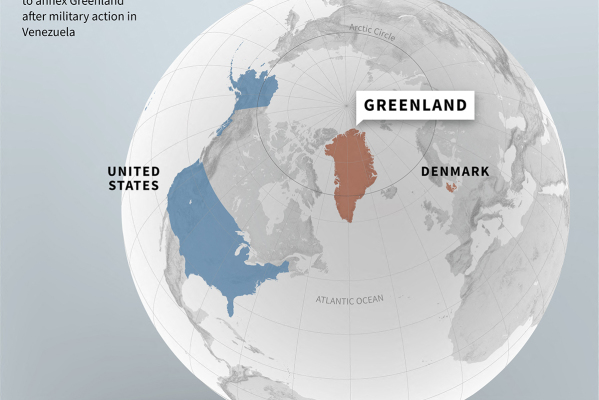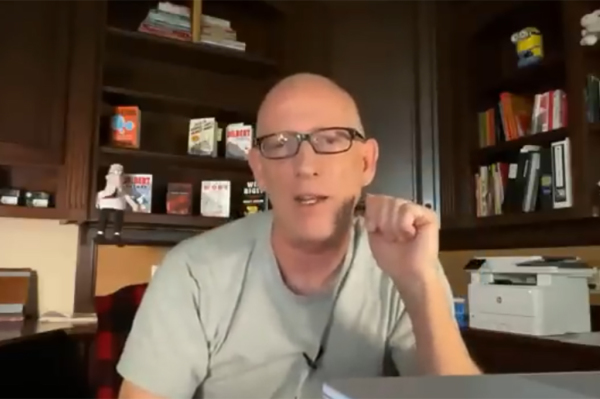How Saddleback spells R.E.L.I.E.F.
In the last year, it seems like the whole globe has been rocked with one huge disaster after another, from the tsunami in Southeast Asia to the Gulf Coast hurricanes in the United States to the earthquake in Pakistan. I don’t think it’s a coincidence that this is also the year we’re learning, as a church family at Saddleback, to live together in a lifestyle of P.E.A.C.E.
In the 30-plus years I’ve been a pastor, I’ve never been prouder of the commitment, sacrifice, and generosity shown by so many Christians around the world as they provide relief to the victims of these natural disasters. The needs are so vast that there’s no way we can do it all, meaning this is a God-sized effort and God will get the glory as we work in obedience to him.
A few months ago, while I was visiting the evacuees of Hurricane Katrina, I gave some thought to how a church should offer relief to those in need. How should we spell “R.E.L.I.E.F.?”
You may recall the old TV commercials that asked the question, “How do you spell relief?” The answer was always: “R-O-L-A-I-D-S.” Now, that may be true if the biggest problem you face is heartburn. But when you’re dealing with the devastation of a regional disaster, the solution is far from that simple.
I believe our R.E.L.I.E.F. efforts should follow these guidelines:
R.E.L.I.E.F.
R – Rally our small groups. A congregation’s relief work should be carried out by its small groups. The Bible says, “Always be ready to do whatever is good.” (Titus 3:5) Our small groups represent a large volunteer force we can mobilize rapidly when needed.
E – Engage local churches as relief centers. Local congregations in a relief zone are the most natural and effective base camps for any of our relief efforts because –
• They already exist in every community.
• They know the community and are trusted by them.
• They have the greatest number of volunteers.
• They have compassionate service as part of their mission.
• They have existing networks.
• They will remain in a community long after short-term relief agencies have packed up and gone.
Jesus promised us: “I will build my church, and the powers of hell will not conquer it.” (Matt. 16:18 NLT) When we do disaster relief in partnership with Christians already living in disaster zones, the church, not the relief worker, is the star. Thus, God uses our work to build local churches.
L – Link with public and private partners. When people work together, they’re more effective, (Eccl. 4:9). In disaster relief, churches can provide manpower, distribution centers, and long-term care. But faith communities need partners with other areas of expertise. The government, for example, provides critical services like rescue and evacuation that many churches aren’t equipped to provide. Businesses lend expertise in their particular lines of work along with capital to support relief efforts.
I – Include physical, emotional, and spiritual support. “God puts poor people on their feet again; he rekindles burned-out lives with fresh hope, restoring dignity and respect to their lives.” (1 Sam. 2:8 MSG) How does he often do that? Through the Church - God created us with more than just bodies; we need far more than medical and material support to recover from disasters. Churches provide the personal and spiritual support that governments cannot offer.
E – Empower survivors to help each other. Survivors of disasters need to be treated with dignity, not as helpless victims. When people are empowered to help with their own recovery, they get their lives back on track faster. “Victims” can cook, serve meals, and distribute resources alongside those who have come to help. Galatians 6:2 tells us that we obey the law of Christ by offering each other a helping hand; 1 Peter 2:17 reminds us to show respect for all people. When we let survivors help each other, we’re both offering help and giving people the respect they deserve.
F – Fund what’s overlooked. At Saddleback Church, we’ve committed to using our relief offerings for strategic needs that otherwise would go unnoticed. As 2 Corinthians 9:12 says, two things result from those gifts: People in need are helped, and the recipients give thanks to God!
As our congregations work with congregations located in the region of the disaster, we help make those congregations be God’s Church to their neighbors. Though church buildings may be damaged or even completely destroyed, our R.E.L.I.E.F. efforts can teach that the Church isn’t a place to go to; it’s a family to belong to – the people, not the steeple.
Until next time,
Rick
_______________________________________________
Rick Warren is the founding pastor of Saddleback Church in Lake Forest, Calif., one of America's largest and best-known churches. In addition, Rick is author of the New York Times bestseller The Purpose-Driven Life and The Purpose-Driven Church, which was named one of the 100 Christian books that changed the 20th Century. He is also founder of Pastors.com, a global Internet community for ministers. Copyright 2005 Pastors.com, Inc. Used with permission. All rights reserved.
Adapted from Rick Warren's Ministry ToolBox, a free weekly e-newsletter for pastors and church leaders, available at Pastors.com.





















